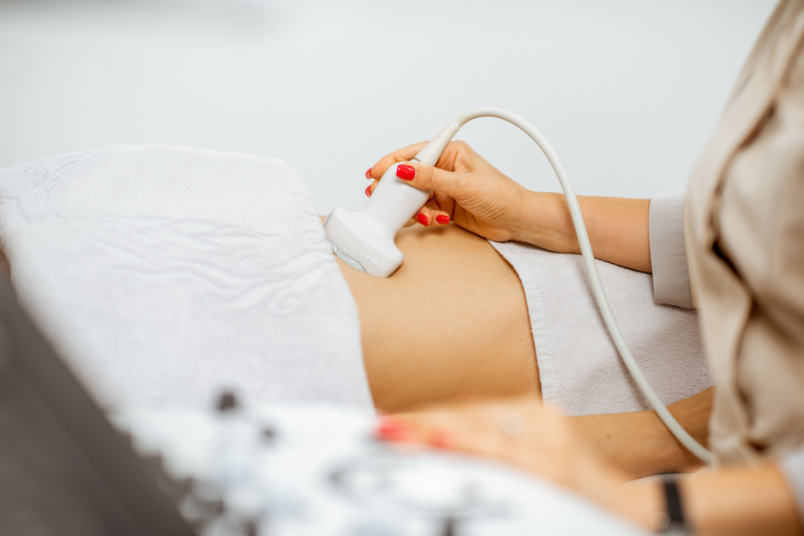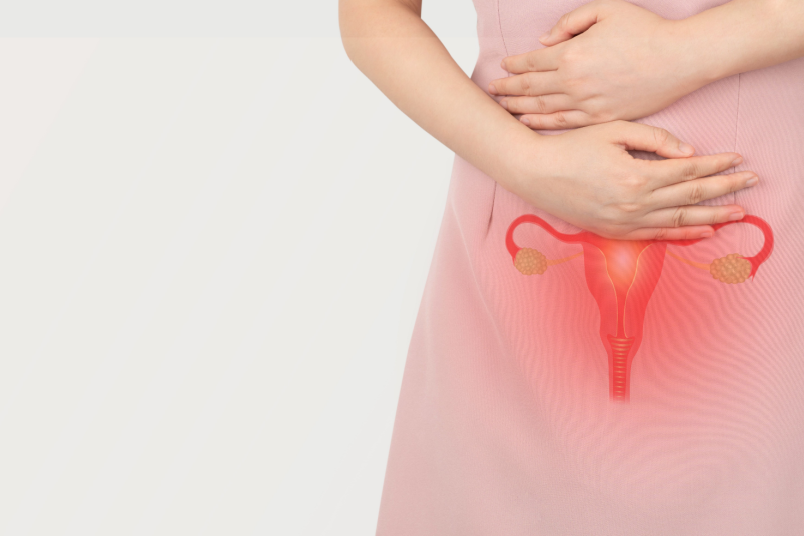Polycystic ovarian syndrome (PCOS) is a health condition that affects women of childbearing age.
In this condition, the ovaries tend to produce excess androgens, a male sex hormone that is usually present in small amounts in women. The name, polycystic ovarian syndrome, describes numerous small cysts (fluid-filled sacs) in the ovaries.
However, these are different from the other ovarian cysts which require surgery. PCOS can have an impact on a woman’s overall health as well as their physical appearance. Although common, PCOS is often a treatable condition.
Impact of PCOS on Fertility

Hormonal imbalances in women may result in excessive amounts of androgens, the formation of cysts in the ovaries, the thickening of the outer well of the ovaries, and insulin resistance. All these changes can interfere with the process of ovulation in women. One of the common signs to understand this is missed or irregular periods.
Signs and symptoms

The symptoms of PCOS may include:
- Missed or irregular periods
- Infertility
- Skin tags
- Acne or oily skin
- Ovaries that are large or have several cysts
- Excess body hair (hirsutism)
- Male pattern baldness or thinning of hair
- Dark or thick skin patches at the back of the neck, in the armpits, and under the breast
Causes

The exact cause of PCOS still remains unclear. However, it has been shown that most women with PCOS have insulin resistance, which means their bodies cannot utilize insulin effectively. Accumulated insulin levels in the body lead to potential rise in androgen levels. Obesity can also raise insulin levels, worsening PCOS symptoms.
Diagnosis

PCOS is diagnosed in the following ways:
To begin with, your healthcare provider will take your complete medical history along with your symptoms. Following that, you will have to undergo a thorough physical examination, especially of the pelvic region. This includes checking the reproductive organs closely.
A few additional tests may also be ordered to confirm the diagnosis. These include:
Pelvic ultrasound: This test creates images of blood arteries, tissues, and organs using sound waves and a computer. It examines the size of the ovaries as well as the presence of cysts in them. It also provides information on the thickness of the endometrium (inner lining of the uterus).
Blood tests: These tests provide information on the levels of androgen and other hormones in women. Additionally, it may provide information on blood glucose, cholesterol, and thyroid levels.
Treatment

There is no treatment available for PCOS as such. However, the symptoms can be treated and managed well. Infertility treatment caused by PCOS involves correcting ovulation issues and tackling metabolic problems, such as insulin resistance. If you have a BMI of 30 or above, your healthcare professional may advise you to lose weight by adopting a healthy eating pattern and regular exercise.
If you don’t wish to become pregnant, hormonal birth control pills may be helpful. However, a few treatments that may help you ovulate and conceive include:
Medicines that stimulate ovulation (releasing an egg)
These medications work by stimulating the ovary to grow eggs. These are taken once a day for five days at the start of your menstrual cycle.
These drugs work quite effectively in helping women with PCOS to ovulate. However, these are started at the lowest possible dose and increased as needed, by your healthcare practitioner.
Insulin-sensitizing drugs
These medications are effective in women with insulin resistance – a condition where insulin fails to act in the body. These drugs aren’t first-line treatments for PCOS but can be used to encourage regular periods and ovulation. They may not be as effective as other treatments of PCOS in helping women to become pregnant but can stimulate ovulation.
Hormone injections
These are injectable hormones that facilitate ovarian stimulation and ovulation. This treatment may require frequent doctor visits to monitor your body’s response to the drug.
Surgery
Surgery in the form of laparoscopic ovarian drilling is recommended for patients who do not respond to medications. Although rare, it may be an option.
Complications of PCOS

If left untreated, women with PCOS may be likely to develop serious health conditions such as
- Type 2 diabetes mellitus
- High blood pressure
- Heart diseases
- Sleep disorders
- Depression and anxiety
- Infertility
- Uterine cancer
PCOS is a common hormonal problem in women of childbearing age these days. It affects the menstrual cycle and causes many symptoms. It is best to speak with a healthcare provider if you believe you are experiencing any PCOS-related symptoms. You can control the symptoms, reduce risk factors, and increase your chances of getting pregnant with the help of medical interventions and lifestyle modifications.
NU Fertility located in Bangalore, India provides special effective treatment for PCOS by well-trained doctors to handle even the most delicate cases with expertise. If you are suffering from PCOS, or have any queries related to infertility, consult the specialist at NU Fertility today!
References:
1. PCOS and fertility. Tommy’s. https://www.tommys.org/pregnancy-information/planning-a-pregnancy/fertility-and-causes-of-infertility/pcos-and-fertility-everything-you-need-know. Accessed on 28 September 2023.
2. Polycystic ovarian syndrome. OASH | Office on Women’s Health. https://www.womenshealth.gov/a-z-topics/polycystic-ovary-syndrome#:~:text=Having%20PCOS%20does%20not%20mean,you%20can’t%20get%20pregnant. Accessed on 28 September 2023.
3. PCOS and pregnancy. Pregnancy birth & baby. https://www.pregnancybirthbaby.org.au/pcos-and-pregnancy. Accessed on 28 September 2023.
Author: Dr. Sneha J



